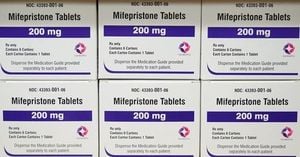The recent ADAC winter range test unveiled significant discrepancies between the claimed range of electric vehicles (EVs) and their actual performance under cold weather conditions. Conducted under controlled circumstances, the study emphasized the challenges faced by E-cars during frosty months, with low temperatures proving particularly harsh on battery efficiency.
ADAC, the German automobile club, tested 25 different electric models with official WLTP ranges of over 500 kilometers. The tests took place at 0°C, using data from actual drives along the Munich to Berlin route, adjusting for variations like highway elevation and traffic, ensuring fair assessments across all vehicles.
The results revealed some surprising champions, with the Mercedes-Benz EQS 450+ leading the pack. The luxury model distinguished itself by traveling 582 kilometers on one charge, achieving impressive energy consumption of only 20.4 kWh per 100 kilometers. It was the only vehicle to complete the entire route without needing to recharge, earning top marks for efficiency.
Following closely behind was the Porsche Taycan, also rated positively due to its low energy consumption and rapid charging capabilities. The Lucid Air, powered by its substantial 112-kWh battery, managed to secure the third position, reaching approximately 518 kilometers. Surprisingly, more budget-friendly contenders like the VW ID.7 Pro S and Tesla Model 3 also demonstrated commendable performance, showcasing the potential for affordable long-range electric vehicles.
While higher-end models excelled, not every vehicle fared well under winter conditions. Nine models received only "sufficient" ratings, with some, like the MG 4, troublingly close to failing due to significant energy consumption exceeding 30 kWh/100 km. The research pointed out widespread issues when temperatures dropped, affecting battery performance and vehicle efficiency, particularly marked by the Peugeot e-3008 which underperformed, only covering half its claimed WLTP range.
ADAC asserted, “An electric vehicle's real range during winter can vary significantly from manufacturer claims,” underscoring the need for consumers to be aware of these conditions when considering EV purchases. The organization emphasized the importance of transparency, calling for manufacturers to report winter range estimates alongside their conventional WLTP figures to help potential buyers make informed decisions.
The report also highlighted the significant toll cold weather takes on battery performance. Factors including lower electrical conductivity within batteries and the resulting drain from heating the vehicle's cabin contribute considerably to reduced range. For example, the NP-OORA 07 model underperformed alarmingly, with only 100 kilometers of range recharged within 20 minutes.
Looking forward, the automotive industry is encouraged to develop improved thermal management systems to maintain battery performance. Professor Maximilian Fichtner from the Helmholtz Institute reiterated, “Effective thermal management can significantly mitigate winter range loss,” advocating for solutions such as preconditioning batteries to established optimal operating temperatures before use.
The ADAC's findings not only highlight the performance of various models but also issue important reminders for potential EV buyers. While winter presents challenges to electric vehicle efficiency, there are several options available across different price ranges proving effective. The affordable Tesla Model 3 outshone many pricier counterparts at approximately €44,990, demonstrating impressive long-distance capabilities. Similarly, the VW ID.7, priced at around €58,895, suggests practical alternatives for fleet managers or budget-conscious consumers.
While the high-end luxury vehicles like the EQS and Taycan set new benchmarks, models like the MG 4 and Peugeot e-3008 raise the question about the reality of lower-end EVs. Despite their potential market share, they struggle with efficiency—showing why comprehensive testing is necessary for consumer trust.
The response from manufacturers will determine how well the industry can adapt to meet consumer demands for reliable winter performance, ensuring electric vehicles capture the growing market seeking sustainable and dependable transport solutions.



